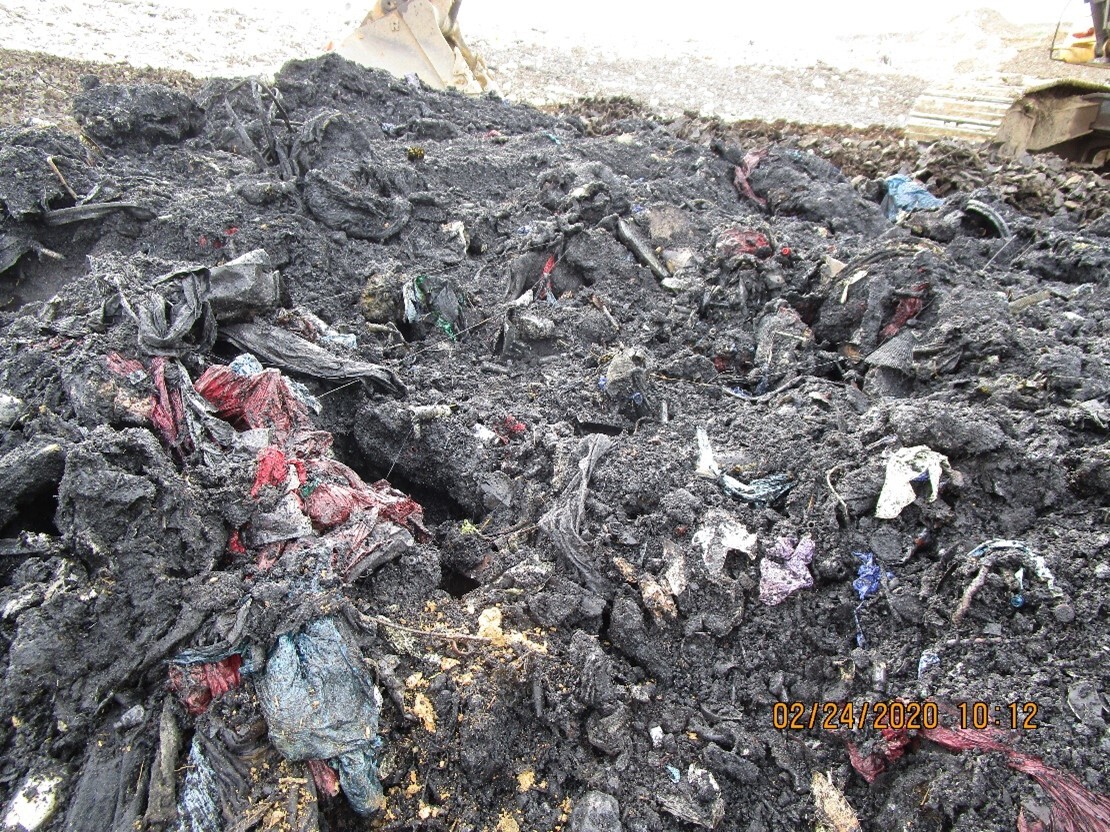South Baltimore medical waste incinerator will pay one of largest environmental fines in state history after improper disposal

Curtis Bay Energy, the nation’s largest medical waste incinerator, which operates in South Baltimore, has been fined $1 million as a criminal penalty for improper disposal of biohazardous materials following a lengthy investigation by Maryland’s Office of the Attorney General’s Environmental and Natural Resources Crimes Unit, according to Attorney General Anthony Brown.
During a press conference near the facility Tuesday, Brown (D) said that as a result of the investigation, the Curtis Bay community and nearby areas will benefit from the “one of the largest penalties that the Office of the Attorney General has ever exacted in an environmental crime case.”
In addition to the $1 million fine, which will be paid to the Maryland Clean Water Fund, the company will pay an additional $750,000 into a Supplemental Environmental Project fund to complete environmental improvements around South Baltimore and affected communities as a condition of probation. That fund will be administered by the Chesapeake Bay Trust.
On Aug. 18, the company and its former director of plant operations Kenneth T. Jackson pleaded guilty in the Circuit Court of Baltimore City to charges involving improper handling of solid medical waste. Former plant manager Thomas Keefer also was charged for the allegations, but his case is still open and he is to be presumed innocent until proven guilty of involvement in the improper waste removal.
After the start of the investigation, the facility was purchased by new owners in early 2021 and has made substantial improvements to infrastructure and in environmental compliance oversight. The new owners of Curtis Bay Energy have fully cooperated with the state’s investigation into historical violations, the attorney general’s office said.
The three-year investigation into the company’s waste removal started in November 2019. State prosecutors concluded that the company regularly failed to properly dispose of “red bag” waste, which refers to a wide variety of biohazards and biological materials from hospitals and medical laboratories. The investigation also found improper of removal of water used to incinerate hazardous medical waste, called “special medical waste” within the industry.
“The persistent, improper treatment of special medical waste was a clear and obvious threat to public health,” Brown said at a press conference located outside the Curtis Bay Energy facility in Baltimore. “It was a crime.”
Opinion: Here’s the Antidote to the Toxicity in the Curtis Bay Community
“Because of the nature of special medical waste and its risk to public health, it is regulated. it is highly regulated by both the Maryland Department of the Environment and the Maryland Department of Health,” Brown said. “It’s why those who are responsible for handling, treating, disposing and transporting special medical waste are held to strict standards. And it’s why we hold them accountable when they fail to meet those standards.”
According to a press release from the Attorney General’s office, certain medical materials must be treated through incineration and must be “reduced to carbonized ash” before disposal at a permitted solid waste landfill.
But the investigation found that Curtis Bay Energy insufficiently incinerated red bags holding the waste before it was sent out for disposal, and the so-called “raw” or “uncooked” waste material was then dumped in a commercial landfill.
Katie Dorian, chief of the Office of the Attorney General’s criminal division, said that Curtis Bay Energy overloaded the incinerators “in order to process waste faster, resulting in only partially burned or unburned raw waste leftover.”
Such raw materials could include liquid or dried blood, anatomical materials and other biohazards. Dorian said that these materials would fall out of trash trucks during transportation.
“During the transport, the trailer leaked fluid. So much so, that it got on investigator’s cars and windshields as they trailed behind the truck conducting surveys,” Dorian said. “Once the waste was dumped in the landfill investigators documented substantial amounts of unburned combustible medical waste such as plastic paper red waste bags, medical gloves, plastic pill bottles, biological material and more.”
The investigation found that employees of Curtis Bay Energy also improperly disposed of untreated water used in the waste incineration process into nearby properties.
“We are not going to stand by while communities are polluted,” said Maryland Department of the Environment Secretary Serena McIlwain. “We will make sure that companies know when we give them permits, they are to operate in compliance with those permits…If they do not, then there will be major consequences.”




 Creative Commons Attribution
Creative Commons Attribution